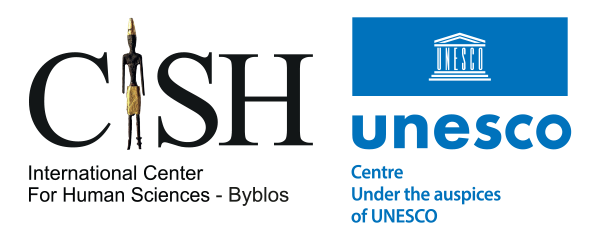This International Forum is a prestigious event, organized to provide an international platform for academicians, researchers, managers, industrial participants, and students to share their research findings with global experts. The accepted papers will be published online and in print, and will be discussed in different panels during the forum.
The Byblos Forum will be held on November 10-11, 2022 as a parallel event of the UN Climate Change Conference COP27 in Sharm El Sheikh.
Background
Environmental Humanities is a field of research that draws on various environmentally focused sub-disciplines in the humanities, including environmental history, ecocriticism, science and technology studies, and environmental justice. It differs from the field of environmental sciences in that it is generally more interdisciplinary and seeks to explain and reconstruct the cultural, social, and historical dimensions of environmental change, and address the human dimensions of contemporary environmental crises, rather than examining these processes through a purely scientific lens. Environmentally engaged study in the humanities has a long history, extending back in some cases many decades into the previous century, most notably in fields such as environmental anthropology and archaeology, environmental history, environmental ethics, and environmental geography. More recently it has emerged in resurgent modes of political ecology, as well as in the prolific field of ecocriticism. Environmental Humanities resists traditional characterization of environmental crisis that imply a divide between “nature” and “culture”, instead highlighting the intersection between “environmental” and “societal” questions, or the entanglement of social and ecological systems in which challenges of well-being, labor, justice and resilience, among others, play out at many scales, from the local to the planetary. Question and issue-driven approaches to widely perceived crises of social-ecological precarity, both today and in the future, characterize some of the most provocative and influential work that has emerged in the Environmental Humanities during the past decade, which has seen the field proliferate at a remarkable rate.
The International Center for Human Sciences – Byblos, Under the auspices of UNESCO (CISH), in partnership with the Hanns Seidel Foundation (HSS), the International Council for Philosophy and Human Sciences (CISPH), the BRIDGES Coalition in UNESCO’s Management of Social Transformations programme, and the Club of Rome are organizing the “International Forum on Environmental Humanities,” taking on the challenge of exploring human cultural knowledge and seeking to bring a diversity of environmental discourses into dialogue over our shared planetary futures.
This forum aims to engage researchers and experts from different fields and countries carrying out original theoretical and noteworthy practical work endeavouring to help shape a better future for humanity and the Earth. The forum will feature presentations by researchers and experts that hold the promise of enriching participants’ knowledge of a variety of research trajectories in the Human Sciences that both complement and deepen knowledge coming out of the environmental sciences.
The CISH is calling for paper submissions to present original research contributions drawing on a wide range of interdisciplinary and theoretical perspectives. Welcoming papers, roundtables, and participatory workshops that foreground the variety, potential and impact of Environmental Humanities research questions and approaches, CISH invites contributions that explore interdisciplinary connections within and across four Pillars of engagement:
• Environment, biodiversity and cultural heritage
• Human and planetary well-being and health
• Peace and war in relation to the environment
• Environmental history, literature and Arts
What type of papers may be presented?
The empirical approach that is a standard requirement in most natural sciences and social sciences disciplines is not the dominant approach of much research in the field of Environmental Humanities. This usual requirement is extended in the current call to include other research methods and approaches (evidential-analytical approaches, reports on the results of research projects or case studies, hermeneutical or philosophical essays offering original discussions of any of the topics addressed in this call for papers; theoretical or methodological discussions, novel analyses of published research, scientific and scholarly synthesis or discourse analysis.
Paper form requirements
Papers shall follow the following format:
Number of pages: Ten to fifteen pages spaced 1.5
Language: English, French, Spanish or Arabic
Font: 12-pt. Times New Roman / 15-pt. Traditional Arabic if the article is in Arabic language.
Front Page: Title, Name and Date
Second Page: Abstract
Full article with endnotes referencing
Evaluation of Papers
The final paper will be published in the peer reviewed CISH journal and discussed in a conference.
The proposals will be evaluated by the scientific committee against:
Importance of the research objectives and their alignment with the focus of this call for proposals;
Research must attempt to gather outcome evidence;
Contribution to the body of knowledge;
Theoretical framework;
Consistency in the design and methodology;
Timelines
The abstracts are to be submitted to [email protected] by the following deadlines:
Abstract submission deadline: September 25, 2022
Notification of acceptance/rejection: Applicant must receive a notification one-week after Abstract Submission
Final paper submission deadline: October 28, 2022
